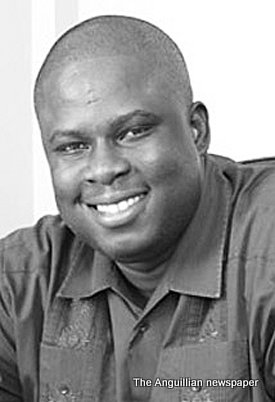When people die, we often think about their legacy. Not so much in terms of their riches or estate, but rather their accomplishments, their impact on other people and communities, and the mark they have left on the world. I found myself thinking a lot about this during the past week, as Anguilla observed a period of national mourning in honour of the late former Chief Minister, Mr Hubert Benjamin Hughes. Many persons spoke of the late Mr Hughes’ legacy and how his life personally impacted theirs.
It struck me while listening to the various accolades being accorded to the late Chief Minister, that a person’s legacy seems to be based on other people’s perception of that individual’s accomplishments and impact. Perhaps, this is how it should be, but I began to question whether or not there should be a more objective measure of a person’s legacy. I don’t have the answer to that question, and I certainly do not wish to appear to detract from Mr Hughes’ legacy. However, as events unfolded last week they caused me to think about the rest of us who are still here and how our legacy will be measured – through whose lens will it be viewed; and how will their perception affect the accurate representation of our legacy.
Have you thought about your legacy? I’m not sure it is something that many people actively give consideration to. Perhaps if we did, we would live more intentionally, give more freely, love unconditionally and show compassion for our fellow human beings. However, it seems that we are becoming increasingly consumed by selfish pursuits, greed, envy and keeping up our images. When we die, do we want to be remembered for all the things we accumulated, or what we gave to others? Is it important what we accomplished academically or professionally, or do we prefer to be remembered for readily sharing our knowledge with others and assisting in their growth and development? Do we want to be remembered for being popular and the centre of attention, or for quietly serving the needs of the vulnerable? Our individual answers to these questions should guide our everyday decisions. In other words, the lives we live today should mirror the legacy we wish to leave when we die.
I often wonder whether our leaders consider their legacies. When they make decisions do they think about how those decisions will shape their legacies? This shouldn’t stymie their decision-making, but it should cause them to assess whether their decision will place them on the right side or the wrong side of history. They should consider how their decision will impact others.
Undoubtedly, people in positions of leadership are bombarded with a myriad of issues on a daily basis which they have to sift through. It easy to focus on present circumstances and make decisions that appear to be the best ones for now. It is more difficult to make decisions which are unpopular for now, but which will be in our best interests in the long term. It is an unenviable task, but I believe that is what our leaders signed up for. I believe if they consider their legacy, they will make the right choice. Never mind the perception of their legacy may vary depending on which vantage point it is being viewed from. This is immaterial. I have come to conclude as did Mother Teresa (in the words, below attributed to her) that your legacy is a matter between you and God:
“The good you do today, will often be forgotten. Do good anyway.
Give the best you have, and it will never be enough. Give your best anyway.
In the final analysis, it is between you and God. It was never between you and them anyway.”








